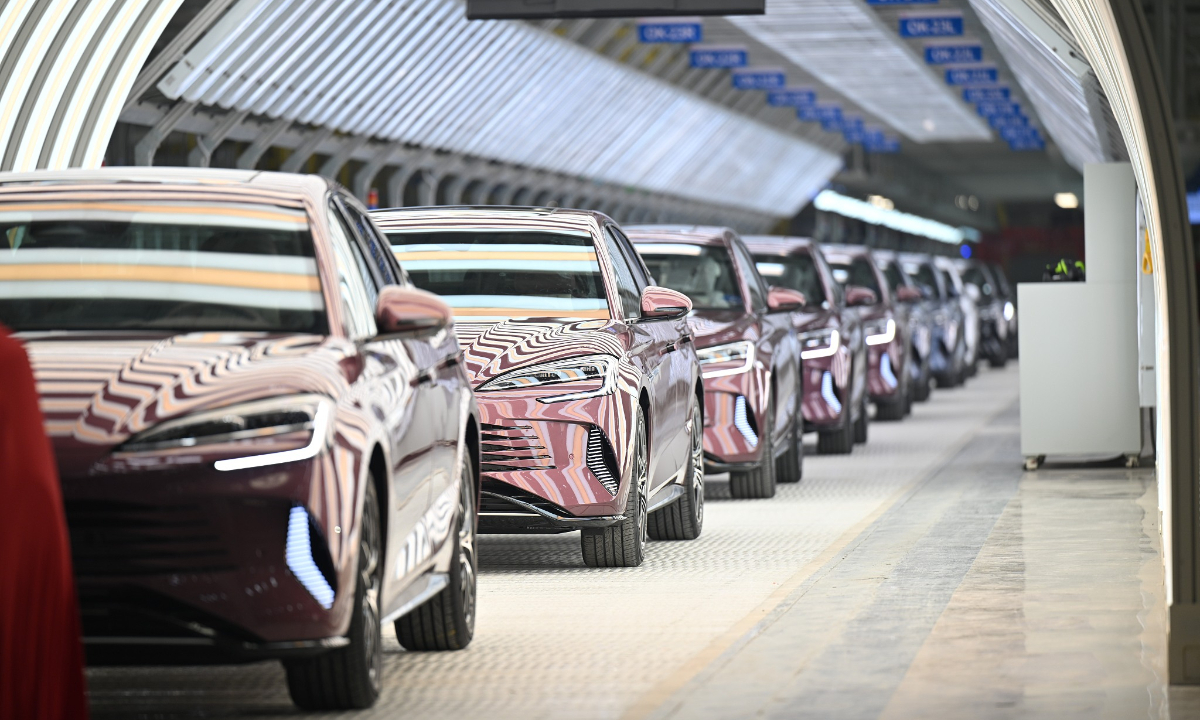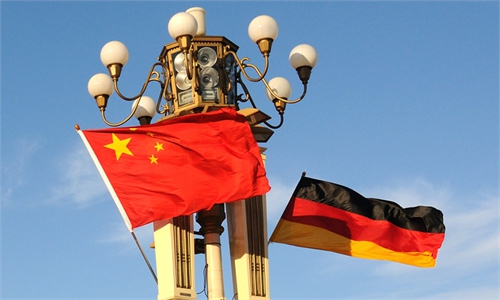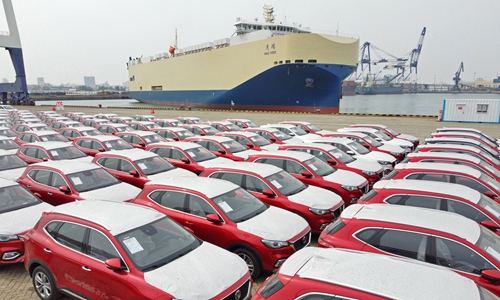
EV Photo:VCG
A number of landmark cooperation deals between Chinese electric vehicle (EV) makers and their partners in ASEAN countries were announced recently, which happened as the EU turned toward protectionism with its anti-subsidy probe of Chinese EVs.
Analysts said the vibrant cooperation of China and ASEAN on EVs and green development was in contrast to the protectionist stance of the EU, which has a biased view of the development of the Chinese EV industry.
They warned that the protectionist actions taken by the European Commission (EC) threaten to slow the Europe's transition toward electrification and will impede the EU's economic recovery and damage the interests of EU consumers.
Chinese EV manufacturer BYD announced on Wednesday that its models including the Dolphin ranked first in terms of all-electric EV sales in Thailand for the past nine consecutive months.
On the same day, another Chinese automaker Zhejiang Geely Holding announced that it had agreed with Malaysian automaker DRB-Hicom to develop an automotive hub in Malaysia to "accelerate the country's transition toward new-energy and smart automobiles." Geely will reportedly invest $10 billion in related projects there.
On the logistics front, COSCO Shipping Car Carriers, a leading car shipping company in China, told the Global Times in a statement on Wednesday that it launched its first third-country freight service from Thailand on Tuesday.
After offloading Chinese vehicles at Laem Chabang Port, a ship loaded with Thailand-produced excavators will continue its journey to the Middle East.
These cooperation deals are facets of deepening China-ASEAN cooperation in EVs, while an industry cluster takes shape in the region, banking on stronger ties and a cooperative spirit.
On the back of the advantage of scale of China's EV industry and global green transition, more Chinese EV brands are going global and their worldwide recognition continues to increase.
On Wednesday, the China Passenger Car Association (CPCA) said that it firmly opposes the EU's move last week to launch an anti-subsidy probe into Chinese EVs, noting that the decision is groundless and violates WTO rules.
The EU's decision is based on a subjective assumption of so-called "economic threat" to the EU's electric car industry, rather than based on sufficient facts, the CPCA said.
"The nature of the EU's move is to hinder and curb China's technological rise, which violates the WTO's principle of fairness," the association said, urging the bloc to stop using unilateral trade tools that were designed to hinder China's EV enterprises' development in Europe or increase their operation costs.
He Weiwen, senior fellow of the Center for China and Globalization, told the Global Times that even if the EU manages to protect its EV industry, it cannot avoid the damage inflicted by its protectionist measures on its industrial chain, harming the long-term growth prospects for its EV industry and green transition.
According to data released by the CPCA, China's exports of EV passenger vehicles surged by 107 percent year-on-year to 91,000 in September, or up 16 percent month-on-month.



